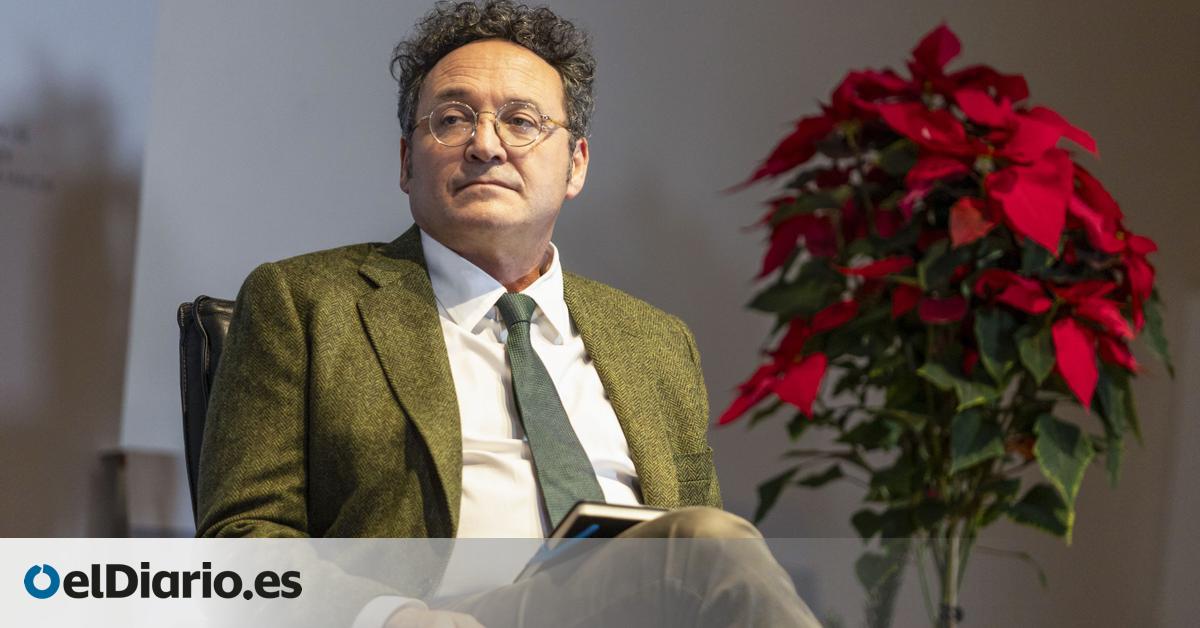
The Supreme Court judge investigating the State Attorney General has moved to find out who Álvaro García Ortiz spoke with and who he exchanged messages with in the days in which the case of double tax fraud of Alberto González Amador, partner of Isabel Díaz Ayuso, came to light. . Judge Ángel Hurtado has asked the telephone companies to provide their call records on the key days of the case in an order in which he justifies the measure based on a Supreme Court ruling on drug trafficking: the resolution that convicted a dozen of members of a drug trafficking group that introduced almost two tons of hashish into Spain using up to 85 phones to hide from the Police.
Since mid-October, the judge has been investigating whether the attorney general or the top prosecutor of Madrid had any role in the leak of documentation in the tax fraud case of Ayuso’s partner: the email in which his lawyer confessed that he had defrauded more than 350,000 euros using a network of false invoices and in which he was in favor of accepting an eight-month prison sentence in exchange for paying his debts and fines and avoiding, in practice, spending a single day in prison.
The judge’s first step was to send the Central Operational Unit (UCO) of the Civil Guard to the offices of the two defendants in Madrid to collect all the messages and emails from the last seven months related to that alleged leak. In the case of Pilar Rodríguez, provincial prosecutor of Madrid, investigators found messages and emails related to the case, but none that provided details about the possible email leak to the press. In the case of Álvaro García Ortiz, the elite unit of the Civil Guard returned empty-handed: their phones had no WhatsApp messages and only one email related to the case that did not give relevant details either.
The Civil Guard itself informed the judge that the attorney general had changed its terminals at the end of October: a week after learning that the Supreme Court had opened proceedings and a week before the registration. Something that sources from the Prosecutor’s Office had already recognized, explaining that this change of terminal and deletion of messages responded to the usual policy of the Public Ministry regarding data protection.
Judge Hurtado does not give up and this Tuesday he launched a new battery of proceedings to find out if García Ortiz’s telephone records give any clue as to whether he was involved in the alleged leak. It has asked two telephone companies to provide “the traffic data of calls issued and received”, identifying their owners and “the data packages issued and received”. All between March 8 and 14 of last year: the dates on which not only Alberto González Amador’s confession was revealed, but also the case itself and the complaint that the Prosecutor’s Office had filed against him.
The judge, who in previous resolutions had asked the Civil Guard to identify whether the mobile phones studied are the ones he used, goes one step further in that sense and explains that the IMSI and IMEI associated with his telephone cards “do not provide identity on the user of the device” and that this identity “may be relevant” in the investigation. It is then that he cites a ruling from the same Supreme Court from November 2018 to explain that “it is necessary to obtain the telephone’s commercial number”, explaining that these codes are sufficient to do so.
Up to 85 phones seized
The sentence cited by the high court imposed sentences of up to ten years in prison on a dozen drug traffickers who between 2014 and 2015, in different deliveries, introduced up to 1.8 tons of hashish into Spain from Morocco and with a destination set in Catalonia. The drug is valued, in total, at almost three million euros and was taken to the northeast of the peninsula using a system of “security telephones” to “hide as much as possible” the operation, finally discovered in a joint operation by Mossos d ‘Esquadra, National Police and Tax Agency.
The criminal organization dismantled at that time even had members specialized in providing “phone lines and recharges” so that all its calls and operations – such as planning the arrival of hashish to Spain – were opaque to investigators. During the searches, the agents seized up to 85 mobile phones, many of which had been tapped by order of a judge to dismantle the trafficking group. The Supreme Court not only endorsed the wiretaps in that case, a pillar of numerous cases against drug trafficking, but even increased the sentences of some of its members.
The use of the arguments of this sentence to promote the new request for information on the attorney general’s communications comes in a key month for the case opened against him for revelation of secrets. This week, up to eight journalists who published information about Alberto González Amador’s confession between March 13 and 14 appear before the judge as witnesses. And Miguel Ángel Rodríguez, Isabel Díaz Ayuso’s chief of staff, will do it first.
Miguel Ángel Rodríguez goes to the Supreme Court as a witness
Since the beginning of the case, the Prosecutor’s Office maintains that Álvaro García Ortiz did not participate in the alleged leak of this documentation and that the first to disseminate those emails was Miguel Ángel Rodríguez himself, Ayuso’s right-hand man in the Community of Madrid. The first moves by the Prosecutor’s Office to collect these documents came on the night of March 13, after the newspaper El Mundo published that the Prosecutor’s Office had offered a deal to Alberto González Amador, when it had been the other way around. And Ayuso’s chief of staff, that same night, had spread that version among several journalists.
Rodríguez manipulated the facts to affirm before several informants from various media that the prosecutor in the case, Julián Salto, had written an email to Alberto González’s lawyer offering a pact. Ayuso’s chief of staff did indeed disseminate in that message an email written by Salto, but he had omitted that a few days before González Amador’s lawyer had sent another, the origin of the communication, offering that agreement.
The false information that Rodríguez disseminated went further and stated that, in addition, this possible agreement had been stopped from the highest levels to the prosecutor Salto, implying that the objective of the Public Prosecutor’s Office was to drag the businessman through the longest legal process possible. , another of the extremes that the Prosecutor’s Office sought to deny. As published by the newspaper El País, Salto himself denied in his first testimony in the case that he received any type of pressure to hinder a possible pact.
Source: www.eldiario.es

